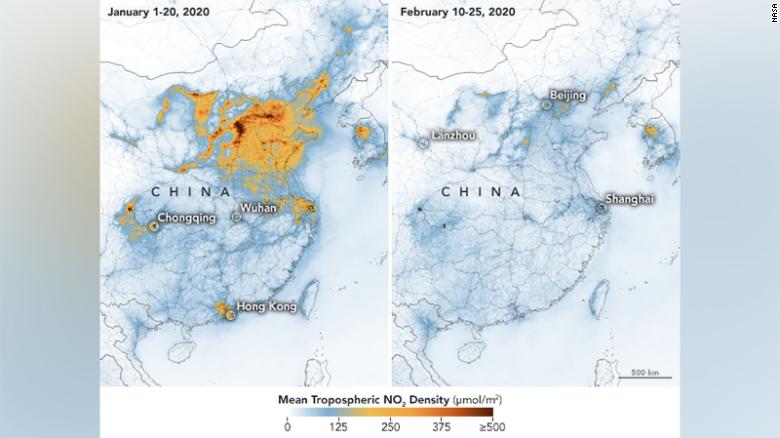Closed borders, movement control orders, increased travel restrictions—countries all around the world are imposing more measures to curb the spread of COVID-19.
This week in Malaysia, life as we knew it changed in a matter of days as businesses and schools shut, rush hour ceased and anyone out on a grocery run is usually mask-clad, sanitiser-ready and three feet away from you. But while the government and medical experts explain that social distancing and staying at home is the most effective tool to slow the spread of coronavirus in our community, less has been said about how to protect ourselves and each other from the negative mental health impacts of the outbreak.
These are profound moments of uncertainty and disruption. Combined with the increased separation, contagion and financial worries in our everyday lives, it’s normal to feel concerned, stressed and anxious during this period of crisis.
We spoke to three clinicians, clinical psychologist Puveshini Rao, mental health therapist Magda Thé and professional counsellor Eric Hiew from KL-based Rekindle Therapy for advice and tips on how to look after ourselves and each other.
Keep calm in and in control (of what you can control)
Widespread panic can complicate efforts to manage the outbreak effectively. If you’re feeling overwhelmed, take a moment and breathe.
“We as a society don’t know what we are facing and hence, we feel out of control aka unsafe,” explains Rao. “We try desperately to find some form of control which leads to panic buying, the catastrophic thinking, going back to hometown or being close to family. This brings a sense of comfort in a way because people feel they are doing something to defend themselves. However, sometimes this same urge to do may be counterproductive and causes the spread of the virus, which is the threat in the first place.”
Do your best to stay calm, positive and sensible. Try to remember the distinction between the things that are out of your control and the productive ways you can actually help:
- Buy groceries in moderate amounts like you usually would
- Wash your hands frequently and thoroughly with soap or hand sanitiser
- Stay at a relatively safe space, as much as possible and indoors
- Engage in calming activities such as reading, playing with your dog, watching TV, jump on the Tik Tok bandwagon. Now is the time to do things you previously didn’t have time to do, but remember to do so mindfully
“This is you doing something. You can’t see it, but in your own way you are helping safe us all from this pandemic,” says Rao.
Take a break from the non-stop news cycle
While reading the news is necessary to stay informed about updates and changes taking place in response to the coronavirus, the sudden and near-constant influx of news reports (and the rampant spread of misinformation) can cause anyone to feel anxious or distressed. What we don’t need to do is open up 10 tabs of bad news on our laptops and think that the end is near.
So limit your intake of news to trusted sources of information and perhaps decide on a specific time to check in each day. Turn off notifications if you need to and avoid continuous use of social media if it’s exacerbating your fears and anxieties.
Maintain structure
As we readjust to the MCO period by setting up home offices (check out our WFH guide here), it’s paramount to impose a system to help us feel less anxious and have some certainty.
“If we work from home, don’t show up in your pyjamas but dress up as a sign that you are working and have boundaries in terms of space and time,” says Magda Thé, mental health therapist. “When you’re done with your work, get into your comfy house gear again. If you have kids at home, offer that greater structure too, without being overly rigid. Maintain the routines of getting in and out of bed at your usual time during work and school days.”
Professional counsellor Eric Hiew adds that we must also remember to be flexible to changes. It’s common for things to not turn out as planned at times. When that happens, “breathe first, handle the situation and take it one step at a time.”
Reframe the situation
“Remember that every crisis constitutes opportunity,” Thé advises.
While it may feel like things are only going downhill from here, try to maintain perspective. Medical experts and scientists all over the world are working hard to contain the virus, treat those affected and find a vaccine as soon as they can.
Amid the unprecedented lockdowns taking place, there is a welcome silver lining: nature is slowly reclaiming its place. The canal waters of Venice are clearer because of decreased boat activity, while NASA’s satellites show blue skies in China where the air is usually filled with smog.

She reminds us that we should remember:
- Amidst fear and isolation, we can remember our connectedness to friends and family and we can reach out to ask how they’re doing.
- Amidst panic buying, we can remember to be generous and order online food and have it sent to that old person on the same street.
- Amidst sickness and death, we can remember to love.
- And remember to look up at the sky, see how it is clear, and with much less noise on the roads to hear the birds.
Stay present, stay connected
Perhaps your worries are magnifying—not only are you thinking about what’s currently happening but also projecting into what will happen in the future. In moments like this, gently bring yourself back to the present moment.
Engage in mindful activities that help you stay grounded when things feel beyond your control. Keep yourself moving around the house, do a spring clean and organise if you feel like it.

It’s also important during times like this to stay connected with each other. While we may be practising social distancing right now, it’s only physical. Stay in touch from afar.
“In the modern world, we are blessed with relatively good internet connection around Malaysia,” Hiew says. “I’ve seen many people started using applications such as Zoom, Google Hangouts, Skype, WhatsApp, Line, and etc to stay connected with family, friends and colleagues.”
And for those living with family or flatmates, take the opportunity to spend quality time together and enjoy each other’s company.
“If you are staying under the same roof, it doesn’t hurt to bring out some evergreen games such as snake and ladder, monopoly, mahjong, congkak, or you can simply do something fun like gardening or watching a movie together.”
We’re all in this together
Though it may feel like the world is fencing off with increasing separation between communities, remember that what’s happening now is a shared global experience. We may be standing in solidarity, but we’re standing in it together. The pandemic should motivate us to promote public health and not just our own personal security.
If someone around you is stressed or worried about coronavirus, show compassion, listen to understand their anxieties and offer your support even if its not IRL.
On the other hand, if someone around you isn’t taking the coronavirus seriously, remember that actions speak loud than words.
“We have to walk our talk. When others see that we are taking it seriously by practising social distancing, they will start to do the same. Be supportive of each other during this period. Instead of ‘I need to survive’, reframe it ‘We can survive this together’,” says Hiew. “When we change our perspective from ‘I’ to ‘we’, things will be pleasant as we can support one another. Technology allows us to be of support to someone who is in need without us being there in person. A simple positive thought or positive note can be of great help to someone in need. There is always an old saying, ‘A single twig breaks, but the bundle of twigs is strong’.”
| SHARE THE STORY | |
| Explore More |




